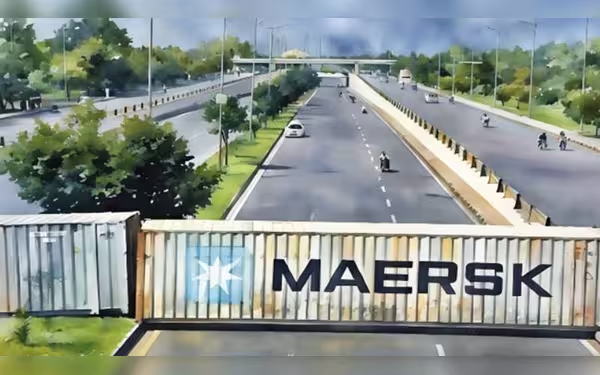Saturday, November 16, 2024 07:46 PM
Political Instability and Economic Consequences in Pakistan
- Pakistan downgraded to 'Authoritarian Regime' in Global Democracy Index.
- Protests disrupt economic activities and daily wage earners' livelihoods.
- Government spends millions on containers to manage protests amid economic crisis.
 Image Credits: thefridaytimes
Image Credits: thefridaytimesPakistan faces political instability and economic challenges as protests disrupt daily life and government spending priorities raise concerns.
In recent years, Pakistan has faced a tumultuous political landscape characterized by instability and insecurity. Unlike many democratic nations where general elections foster political stability and promote socio-economic growth, Pakistan's elections often lead to unrest, protests, and a cycle of political turmoil. The upcoming general elections in 2024 have sparked a new wave of instability, raising concerns about the country's democratic health.
Political demonstrations and protests are typically seen as signs of a vibrant democracy. However, in Pakistan, they often reflect deeper issues. The Global Democracy Index 2024 has downgraded Pakistan from a "Hybrid Regime" to an "Authoritarian Regime," marking a significant decline of 11 places. This shift highlights the troubling reality that political instability is a direct result of ongoing protests, which in turn negatively impact economic growth.
Recent months have seen Islamabad and Rawalpindi become hotspots for various political protests. During these events, the government has resorted to sealing off cities with heavy containers, severely disrupting economic activities. In a country already grappling with economic challenges, the closure of roads and cities makes it increasingly difficult for daily wage earners to find work. The situation is dire, as many individuals are left without a means to earn a living.
Moreover, the government has employed tactics such as mobile signal and internet disruptions to manage protests, which is a strategy that ultimately harms the economy. In today's world, where the economy is heavily reliant on technology and the internet, such actions can have devastating effects. A study by PIDE Islamabad revealed that a single day of internet shutdown costs the economy approximately Rs1.3 billion, which is about 0.57% of the daily GDP.
The repercussions of political unrest extend beyond economic costs. The educational sector is particularly vulnerable, with closures of institutions due to political or religious events becoming commonplace. This leads to postponed exams and disrupted class schedules, causing significant stress for students. Access to public libraries, which are already limited in number, becomes even more challenging when roads are blocked.
Despite receiving a $7 billion bailout from the IMF, the Pakistani government continues to spend millions on containers to manage protests. Reports indicate that the government rented 470 containers in Islamabad and Rawalpindi during a recent wave of protests, costing around Rs16.45 million. This expenditure raises questions about the priorities of the government, especially when many citizens are struggling to make ends meet.
It is crucial for all political parties in Pakistan to recognize the economic and mental suffering of the public. While the right to protest is fundamental, the motivations behind these demonstrations often seem to be more about elite interests than the welfare of the people. Political parties must prioritize stability and engage in constructive dialogue to address the pressing issues facing the nation.
If the current political climate persists, there is a risk that non-political actors will gain influence in Pakistan's political landscape, leading to further economic consequences. The path to economic recovery lies in fostering political stability and finding less disruptive ways to manage dissent. Until political forces can work together responsibly, Pakistan's economic future will remain precarious, held hostage by ongoing instability.













